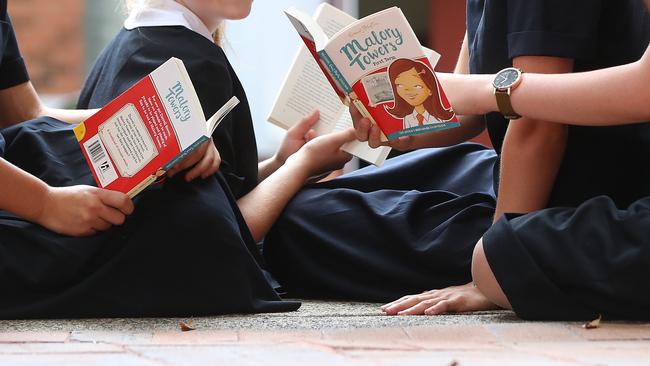School boarders face ‘unfair hit’ under review of parents’ capacity to pay
Boarding schools are emerging as potential victims of the education funding war.

Boarding schools are emerging as potential victims of the education funding war because they could lose tens of millions of dollars under a revised formula for assessing parents’ capacity to contribute.
NSW Association of Independent Schools chief executive Geoff Newcombe has warned against punishing boarding schools in the response to a federal funding review. Dr Newcombe said boarding schools, which are mainly in the independent sector, provide a valuable service for many in regional and remote areas.
The government has ordered an inquiry into the socio-economic status funding model of non-government schools, with the Catholic sector odds-on to receive significantly more.
Dr Newcombe warns that if assumptions being made about the review are correct, action should be taken to protect boarders. “If the current funding model distorts a school’s SES to the extent some have claimed, boarding schools in particular will be seriously impacted,’’ he said.
“Outside of the independent sector very few schools offer boarding so it’s important the government realises that many families in regional and remote areas rely heavily on boarding as the best option. Many are farming families who receive a considerable amount of financial and other support from these schools so their child can access a high quality of education.”
The current SES system estimates what people can afford to pay based on their neighbourhood. Each family is assigned to a neighbourhood of about 200 households, and judged to have the average characteristics of that area, but that means an elite boarding school can be deemed to be poorer than an inner-city Catholic school. Asset-rich, and even income-rich, farms are often tied to lower socio-economic service towns and communities.
Combined boarding and tuition fees at some schools can be more than $50,000 per student, pointing to significant wealth in many of the families that take this option. The Catholic sector has argued that the size of school fees should be taken into account when assessing parental capacity to contribute.
Education Minister Simon Birmingham is edging closer to determining his position on how to respond to the SES review.
The review, run by businessman Michael Chaney, will lead to a system of SES funding in which tax income data will be relied upon to determine what schools or sectors should receive, rather than the geographical model. That will mean the Catholic sector gets $1 billion or more extra over four years, government sources say, although there is also speculation it could receive “billions’’ in extra revenue. This could be over 10 years.
The political challenge will be attempting to ensure that heartland Liberal-National votes are not affected, particularly in elite independent boarding schools.
The Catholic Education Commission of Victoria estimates some independent schools have been overpaid as much as $12.9 million a year because of low SES scores based on the geography of the schools and where their parents live. But the independents have accused the CECV of grossly simplifying the situation.


